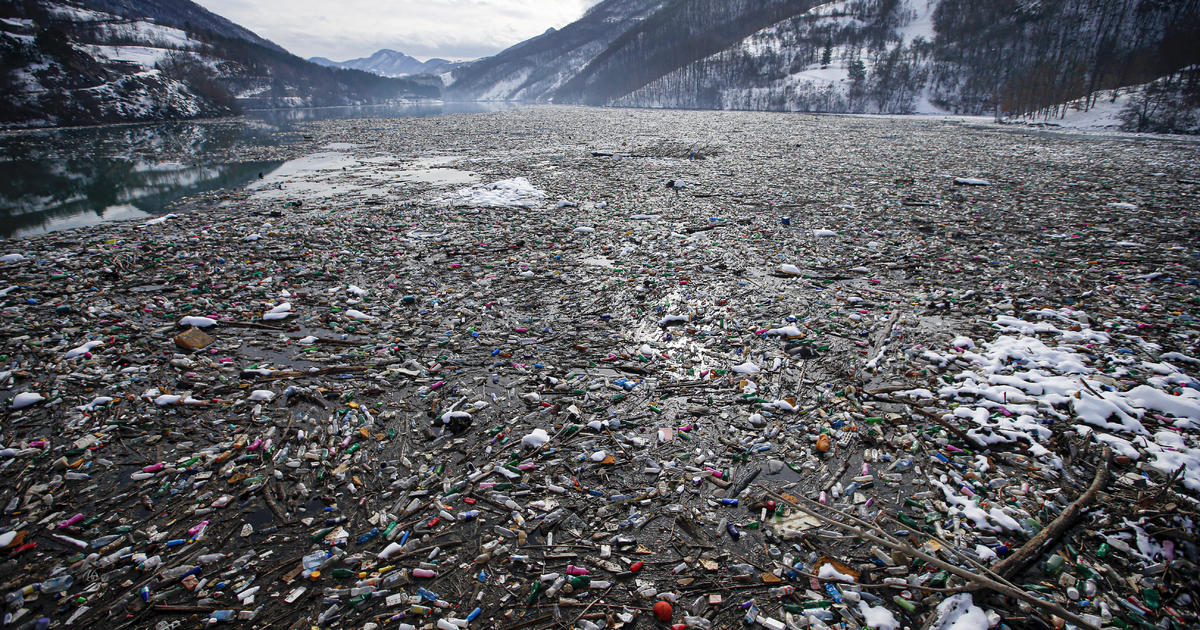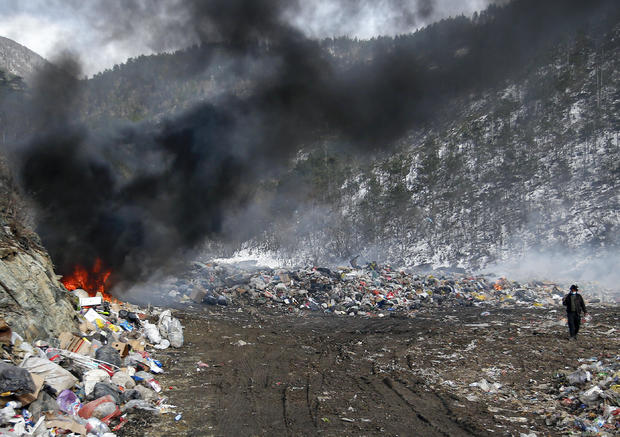
Darko Vojinovic / AP
Priboj, Serbia – Trucks and construction machines are parked on a river dam in southwestern Serbia, but not for construction work. Instead, huge cranes are used to clean up tons of garbage crammed at the foot of the power plant. Serbia and other Balkan countries are overwhelmed by municipal waste after decades of neglect and the lack of effective waste management policies in countries aspiring to join the European Union.
Burnt landfills can be seen from the roads, plastic bags hang from trees and waste islands float on the region’s rivers. The problem is usually concentrated in the winter, when swollen waters pass over landfills, pushing garbage to hydropower dams.
This was the case of the Potpec accumulation lake near the power plant, after a rainy and snowy period in December and the beginning of January. The surface of the lake was covered with a thick layer of debris, from plastics to rusty metal debris, tree trunks and even looks like a coffin.
Darko Vojinovic / AP
The garbage was swept downstream by the river Lim, which feeds the Potpec dam. Lim has its origins in neighboring Montenegro, passing through several municipalities and their waste sites in both Montenegro and Serbia.
“Based on a recent study, we found that in these cities, in the five municipalities of Montenegro and three in Serbia, about 45,000 tons of waste are collected (per year),” said Predrag Saponjic, manager of the Lim River hydropower plant. . . Looking at the lake littered with garbage, he added that “even if only a fraction of this waste reaches the Lim River, we get it.”
Balkan environmentalists have warned that because most landfills are not properly managed, they dump toxic materials into rivers, threatening ecosystems and wildlife.
Darko Vojinovic / AP
Bosnia also reported an accumulation of garbage that endangers the hydroelectric dam on the Drina River, near the eastern city of Visegrad. Lim is one of the tributaries of the Drina, which makes waterways – and garbage flows – closely linked.
The two emerald rivers – the Drina flows along the border between Serbia and Bosnia – during the summer are favored by adventurers and deer who enjoy winding waterways and seemingly clean nature.
While the Balkan nations have struggled to recover from a series of wars and crises in the 1990s, environmental problems often come for countries whose economies lag far behind the rest of Europe and where public funds are vulnerable to widespread corruption.
Jugoslav Jovanovic, from the Serbian water company Srbijavode, which deals with the country’s water system, raised the issue of waste to “our neglect and lack of care”. Landfills are located too close to rivers and are overcrowded rather than closed over the years, he warned.
Darko Vojinovic / AP
“If we force ourselves to do it every year, then it is not really a solution,” he said of the clearing operation. “We need to find a common ground and resolve this by joining forces.”
Serbia, Montenegro and Bosnia have held meetings on the subject, but little has been done. The Balkan countries are also facing other environmental emergencies, including dangerous levels of air pollution in many cities.
Experts predict that the clearing of Lake Potpec will take several weeks, depending on the weather. However, all the garbage in the water will end up in a landfill in western Serbia.
Darko Vojinovic / AP
Goran Rekovic, an activist in the nearby town of Priboj, said that raising public awareness of pollution is a key goal, along with “institutional and systematic” solutions. They are also needed if Serbia and other Balkan countries want to move closer to EU membership.
“This is not the obligation of the European Union. We should not do this for them,” Rekovic said. “The reason we should take care of our environment is for our own future generations.”




